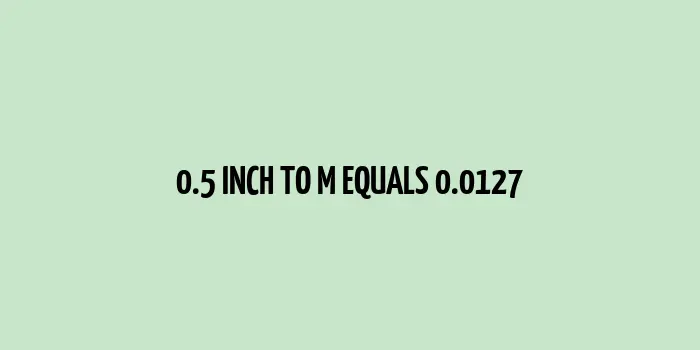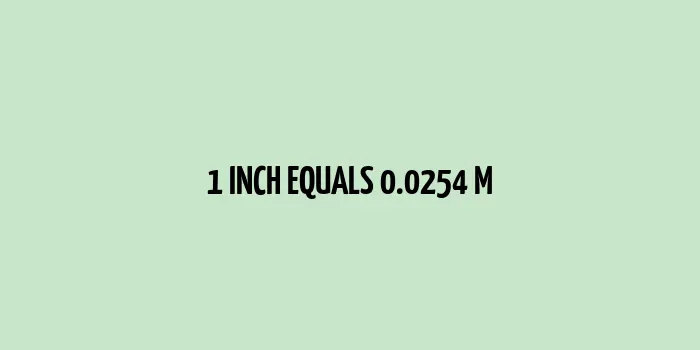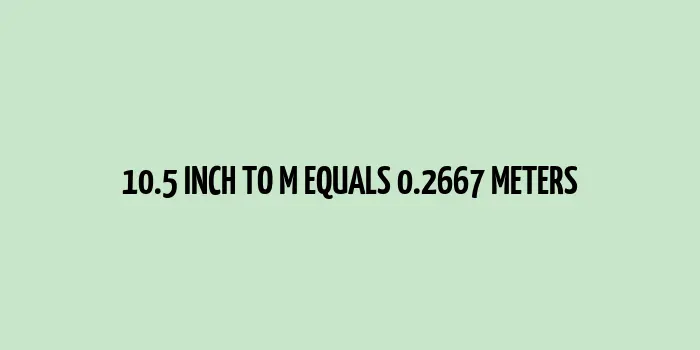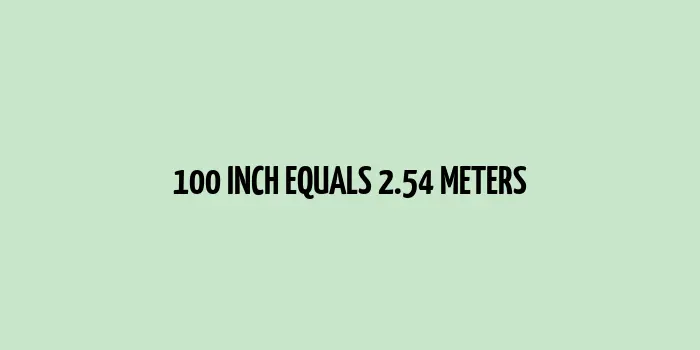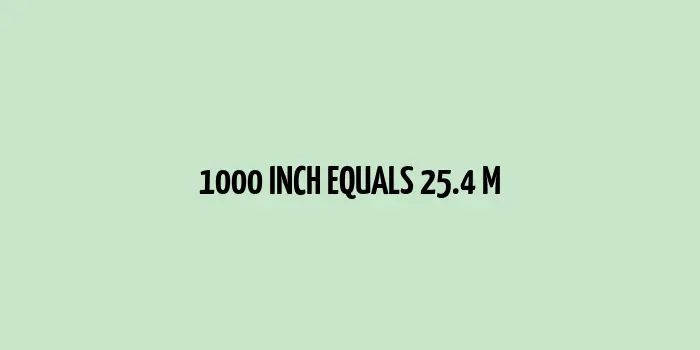20 inch to m (Inches to Meters)
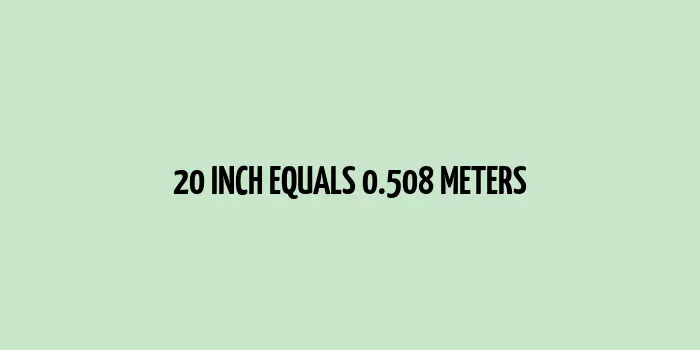
Let us understand the process of converting 20 inch to m
20 inches is equal to 0.508 meters.
Understanding how to convert between inches and meters is important in many contexts. Whether you are working on a school project, planning a home improvement task, or involved in technical work, knowing how to perform such conversions can be beneficial. In this article, we will explore the conversion of 20 inches to meters, provide relevant examples, and clarify why this knowledge is valuable.
To convert inches to meters, you need to know the conversion factor. 1 inch equals 0.0254 meters. Therefore, when you multiply 20 inches by 0.0254, you get 0.508 meters. This precise measurement ensures accuracy in your projects and calculations.
Benefits of Knowing the Inch to Meter Conversion
Knowing how to convert inches to meters can be crucial in various industries, including construction, engineering, and education. For example, in construction, understanding these conversions helps in creating accurate blueprints and ensuring that structures adhere to international standards. Similarly, in educational settings, it provides students with a broader understanding of the metric system, which is used worldwide.
How to Convert Inches to Meters Easily
To make this conversion, follow these steps:
- Understand the Conversion Factor: 1 inch is 0.0254 meters.
- Multiply: Multiply the number of inches by 0.0254.
- Calculate: For 20 inches, (20 \times 0.0254 = 0.508) meters.
Practical Applications of This Conversion
Let's take a home improvement scenario. If you're purchasing a piece of furniture that's 20 inches wide, converting this measurement to meters can ensure it fits in your space if your measurements are in the metric system. Accurate conversions prevent mistakes, saving you time and money.
Example Calculation
Let's work through another example. Suppose you have a length of 15 inches that you need to convert to meters:
- Multiply (15 \times 0.0254).
- This equals (0.381) meters.
Importance in Academic and Professional Settings
Conversions between inches and meters are not just practical for home projects but are often required in schools and colleges across various scientific disciplines. In professional contexts, engineers frequently convert units to align specifications with international standards.
Statistics to Enrich Understanding
- Global Usage: Over 95% of the world's population uses the metric system. This means conversions are fundamental to global communication and trade.
- Education: Around 60% of students in international schools learn conversions as part of their curriculum, emphasizing its foundational educational value.
Let's bring in an analogy for better understanding. Imagine measuring ingredients for a recipe that originally uses teaspoons, but your tools measure only tablespoons. Accurately converting units is just like making sure your recipe turns out correctly—you can't get the desired result without accurate measurements.
FAQs
How do you convert 20 inches to meters?
To convert 20 inches to meters, multiply 20 by 0.0254, which equals 0.508 meters.
What is the formula for converting inches to meters?
The formula is meters = inches x 0.0254.
Why is it important to know how to convert inches to meters?
Understanding these conversions is crucial for accurate measurements in professional, educational, and everyday contexts, ensuring precision and preventing errors.
Can you convert inches to meters without a calculator?
Yes, by using the conversion factor (1 inch = 0.0254 meters) and basic multiplication, but a calculator ensures accuracy, especially for non-whole numbers.
For further understanding, you can refer to Metric Conversions for a comprehensive guide on converting different units of measurement.
Understanding these conversions enhances not just academic knowledge but practical skills in real-world applications, ensuring that measurements are accurate and standards are met.
